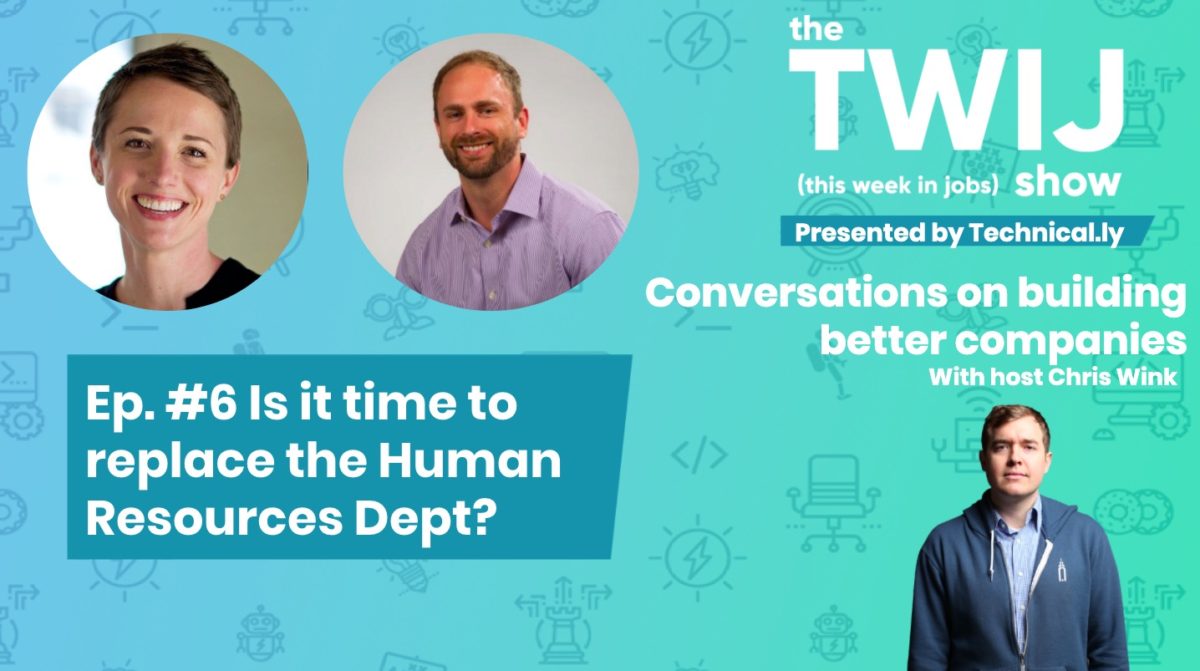People have called for the end of “human resources” before — like in 1988.
It is an old phrase, first used in the 1890s and popularized by the middle of the 20th century. Back then, it was a new and exciting management principal, encompassing something wider than its predecessor: personnel management.
Along the way, the tidy acronym “HR” began to pack a lot of cultural punch for two letters. They were the workplace hall monitors — managing risk and compliance; handling disputes; managing payroll and benefits; hiring and firing and maintaining company policy. Something happened in the last generation, though. Companies increasingly relied on brain power, over machines, and so workplace environments for white-collar workers became paramount for attracting and retaining. It got a name: culture.
Suddenly those back-office HR leaders took on a very exciting set of priorities, like professional development and wellness and employee experience. They were on the frontlines of competing to hire talented people and build great companies. HR leaders were sensibly part of conversations about a company’s mission, vision and values, as stakeholder value competed against shareholder value. The scope of the work grew. Google is credited as first using the “people operations” title in 2006. Over the ensuing 15 years, many companies have followed, leading to the rise of Chief People Officers, and other roles that include words like “culture” and “employer brand” and experience.
“Something similar happened to finance. It was just accounting,” said Megan Emhoff, the chief people officer of Protenus, an 80-person healthcare compliance analytics firm based in Fells Point in Baltimore, Maryland. “They were once back-office and they took on a more strategic place.”
The cloud-hosting company Linode went through its own journey. The company once had an HR department but they’ve since rebranded it to people operations, said Vincent Palochko, the director of people operations at the 230-person cloud-hosting company headquartered in Old City, Philadelphia.
Though it’s been said before, the question remains: Is it time to ditch the human resources department? Is people operations ready to take on the mantle?
That was the topic of the sixth edition of The TWIJ Show, a new weekly interview series that is a spinout of Technical.ly’s This Week in Jobs newsletter. To dig into the topic, we spoke to Emhoff, who joined Protenus after serving as the director of people operations for Curiosity Media in Washington D.C. and holding other recruiting and ops roles, and Palochko, who has grown with Linode after getting his HR admin start at payroll processing giant Paychex.
Why it matters
HR professionals might like to remind you of their quiet importance. The operations, administration and compliance of any organization is definitionally behind the scenes but simply necessary. From recruiting to on-boarding to development and benefits to off-boarding, the functions are so widespread.
Does the name even matter? Both seem to say yes. What the name of the team that supports this work is implies their scope and their prominence in the organization.
This work includes, as Emhoff put it, “people, places and things,” like both facilities and IT needs and company communications and an employee’s paycheck — “that entire lifecycle of an employee’s time with the company,” she said.
It’s important to think about when your company might add a dedicated “people team.” Both Palochko and Emhoff started as one-person HR teams at their respective companies when both were beyond 25 employees. Before that, their work was distributed across generalists, and so there wasn’t a single owner of some of that strategy.
The phrase “human resources management” can seem paternalistic: managing resources. It’s one reason “people operations” is likely the leading candidate for becoming the most popular phrase: How can the most important part of a knowledge-economy company operate better?
“It’s a mindset shift,” said Palochko.
Human resources is a piece of the pie.
“People operations contains HR,” said Emhoff. “People operations as a strategic function is so much more.”
Similarly, “I came to realize what we did was so much bigger than human resources,” said Palochko. He represents a trend: that HR tends to imply compliance and other somewhat mundane back-office functions and companies are expecting far higher-minded outcomes from these teams. “The people operations phrase really had a lot more meaning and [was] more aligned with what we were doing and where we were going as a company and a team.”
But HR is such a helpful phrase; something like a “PO” professional just doesn’t quite sound as elegant as “HR.” Might that change with time if people operations become more commonplace? Perhaps. It’s hard to unpack what comes from common usage and what is simply how the letters sound together.
Both handle this differently now. At conferences and talking with others, he tends to describe what he does as HR, since it is so widely understood. Emhoff does something different. She says she’s in “people operations” and likes to explain what it means.
Both think the phrase change is inevitable, exactly because these departments have taken on more strategic responsibility, “just like human resources used to be personnel department,” said Palochko.
Expect the HR phrase to decline.
“I don’t foresee us ever having HR titles for anyone in Protenus,” said Emhoff. “HR is part of the work; people ops is the approach to the work.”
Both Emhoff and Palochko expect few, if any, new companies will add HR titles; remember how Emhoff likens it to the rise of the chief finance officer, from the once lowly “accounting” department. Those teams took on increasing strategic significance, much like “people teams” have. So though legacy companies may maintain existing HR departments, they both expect to decline.
“We have to put a focus less on just maintaining compliance and more on the employee experience,” said Palochko. “People take jobs for different reasons today. They want to believe in the product and they want to do meaningful work and know they’re going to learn and grow.”
That’s what people operations is meant to mean.







